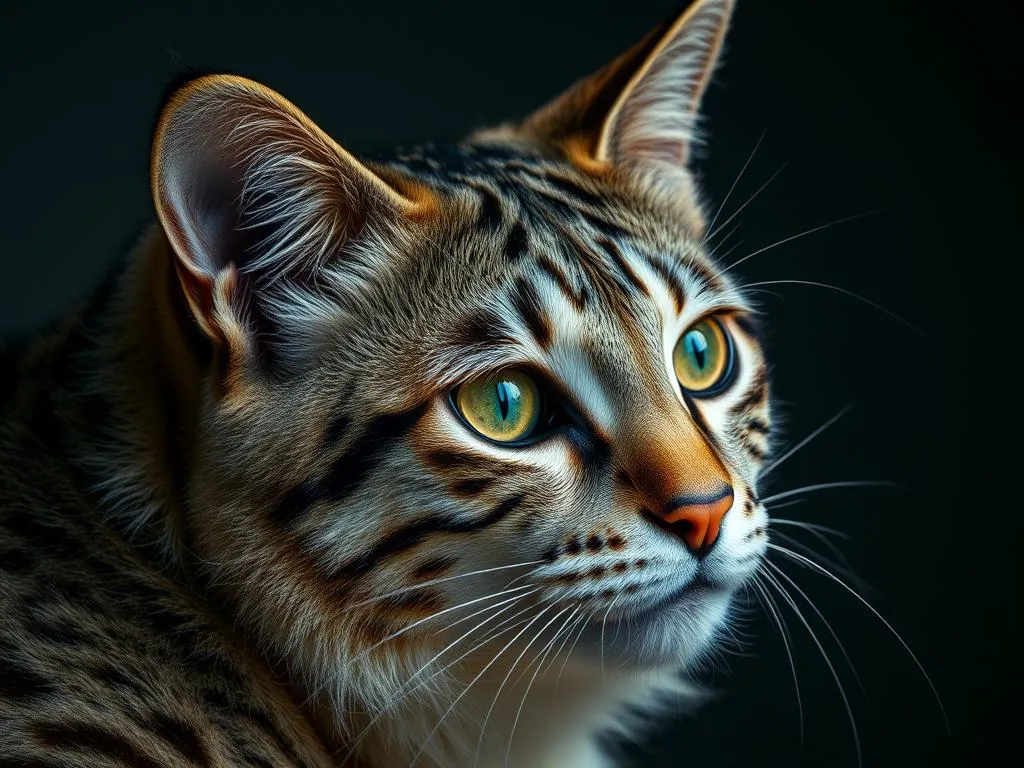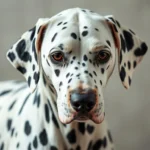
Introduction
Dog breeds are categorized groups of dogs that share specific characteristics, such as appearance, temperament, and abilities. These breeds have been developed over centuries for various purposes, including companionship, herding, guarding, and hunting. The importance of dog breeds in human companionship and work cannot be overstated, as they play diverse roles in our lives.
One fascinating breed is the Poitevin, a remarkable hunting dog that hails from France. Known for its keen hunting abilities and striking appearance, the Poitevin has a rich history that intertwines with French culture and tradition. This article aims to provide a comprehensive guide to the Poitevin breed, exploring its characteristics, care requirements, and suitability for different lifestyles.
History and Origin of the Poitevin
Early History
The Poitevin originates from the Poitou region in France, where it was primarily bred for hunting large game, such as deer and wild boar. This breed is thought to have descended from ancient hounds brought to France by the Romans. The Poitevin played a significant role in hunting practices, showcasing agility and strength that made it a preferred choice for hunters in the region.
Development of the Breed
The breed’s development involved careful selection and breeding for specific traits that enhanced its hunting capabilities. Over time, the Poitevin was influenced by other breeds, such as the English Foxhound and other French hounds, which contributed to its athleticism and keen sense of smell. The breed was recognized for its endurance and ability to work in packs, making it an invaluable asset in traditional hunting practices.
Modern Recognition
The Poitevin has gained recognition from various kennel clubs, including the Fédération Cynologique Internationale (FCI) and the American Kennel Club (AKC). While its popularity has fluctuated over the years, the breed remains celebrated for its hunting prowess and is cherished by those who appreciate its unique traits. Today, the Poitevin is also sought after as a loyal companion, adapting well to family life.
Physical Characteristics
Size and Weight
The average height of the Poitevin ranges from 22 to 27 inches at the shoulder, with a weight typically between 50 to 70 pounds. This size makes it a medium to large breed, allowing it to excel in both agility and strength—qualities that are essential for its role as a hunting dog. Compared to other similar breeds, such as the English Foxhound, the Poitevin boasts a more refined build, which enhances its speed and endurance.
Coat and Color
The Poitevin features a short, dense coat that is weather-resistant, making it suitable for various hunting conditions. The coat is primarily white with distinct patches of orange or black, creating a striking appearance that is easily recognizable. Common color patterns include a combination of white with orange ticking or black markings, which not only adds to its visual appeal but also serves as a means of identification in the field.
Distinct Features
One of the most distinctive traits of the Poitevin is its long, drooping ears, which contribute to its excellent sense of smell. The breed has a long, narrow head with a prominent muzzle, enhancing its hunting capabilities. Additionally, the Poitevin has a long, straight tail that is typically carried low, which is characteristic of hounds bred for hunting. These physical attributes not only define the breed but also play a crucial role in its functionality as a hunting companion.
Temperament and Behavior
General Temperament
The Poitevin is known for its friendly and gentle demeanor, making it an excellent family dog. While it possesses a strong prey drive due to its hunting background, the breed is typically affectionate and loyal to its family. Compared to other hunting breeds, the Poitevin tends to be more sociable, thriving on companionship and interaction with its human counterparts.
Socialization Needs
Early socialization is crucial for the Poitevin, as it helps them develop into well-rounded dogs. Exposing them to various environments, people, and other animals ensures that they grow up to be confident and adaptable. The Poitevin is generally good with children and can coexist peacefully with other pets, especially when introduced at a young age. Proper socialization helps mitigate any potential hunting instincts they may exhibit towards smaller animals.
Trainability
The Poitevin is an intelligent breed, but it can also be independent and somewhat stubborn, which may pose challenges during training. Positive reinforcement techniques, such as treats and praise, work best to motivate this breed. Consistency and patience are key when training a Poitevin, as they respond well to clear commands and structured routines.
Health Considerations
Common Health Issues
Like all breeds, the Poitevin is prone to certain health issues. Some common concerns include hip dysplasia, ear infections, and eye conditions. Regular veterinary check-ups and health screenings are essential to catch any potential issues early. Responsible breeding practices also play a significant role in minimizing hereditary health problems.
Lifespan
The average lifespan of the Poitevin is around 10 to 12 years. Factors that can influence their longevity include genetics, diet, exercise, and overall health care. Providing a balanced diet, regular exercise, and routine veterinary care can help maximize the Poitevin‘s lifespan and ensure a healthy, happy life.
Diet and Nutrition
The nutritional needs of the Poitevin vary based on age, activity level, and overall health. High-quality dog food formulated for medium to large breeds is recommended. Owners should consider a diet rich in proteins and healthy fats to support their energetic lifestyle. It’s also important to establish a feeding schedule, offering meals at consistent times to maintain a healthy weight.
Care Requirements
Grooming Needs
The grooming needs of the Poitevin are relatively low due to its short coat. Regular brushing, at least once a week, helps remove loose hair and dirt, ensuring a healthy coat. Seasonal shedding may require more frequent grooming, especially during spring and fall. Additionally, regular checks of the ears are essential to prevent infections, particularly due to the breed’s droopy ears.
Exercise and Activity Level
The Poitevin is an active breed that requires ample exercise to stay healthy and happy. Daily walks, runs, and playtime are essential to meet their energy needs. Engaging in activities such as agility training or participating in fetch can also provide mental stimulation. Ideally, a Poitevin should receive at least 60 minutes of exercise each day to maintain physical and mental well-being.
Living Environment
While the Poitevin can adapt to various living conditions, it thrives best in homes with yards where it can run and play. This breed is not well-suited for apartment living unless the owner is committed to providing ample exercise outside. The Poitevin is adaptable to different climates, but proper shelter and care are necessary to protect them from extreme weather conditions.
The Poitevin in Competitive Events
Participation in Dog Shows
The Poitevin has made a name for itself in dog shows, where its striking appearance and excellent conformation are often highlighted. Breeders and owners take pride in showcasing their dogs, and the breed has received numerous accolades for its quality and performance in the ring. Participation in dog shows helps promote the breed and encourages responsible breeding practices.
Hunting and Field Trials
As a hunting breed, the Poitevin excels in hunting events and field trials. Its keen sense of smell and endurance make it highly sought after in these competitions. The breed’s ability to work in packs and track game effectively showcases its natural instincts and skills. Many Poitevins participate in hunting trials, demonstrating their prowess and contributing to the preservation of traditional hunting practices.
Finding and Choosing a Poitevin
How to Choose a Responsible Breeder
When looking to acquire a Poitevin, it’s crucial to choose a responsible breeder. Prospective owners should seek breeders who prioritize the health and well-being of their dogs. Key qualities to look for include health testing, proper documentation, and a commitment to ethical breeding practices. Responsible breeders will provide insight into the breed’s temperament and health history, ensuring that potential owners are well-informed.
Adoption Options
Adopting a Poitevin from shelters or rescues can be a rewarding experience. While this breed may not be as common in rescues, it’s worth exploring adoption options. Many dogs in shelters are looking for loving homes, and adopting can provide a second chance for a dog in need. Potential adopters should be prepared for the challenges that may arise, such as behavioral issues stemming from past experiences.
Cost of Ownership
The cost of owning a Poitevin includes initial expenses such as purchase or adoption fees, registration, and essential supplies. Ongoing costs include food, grooming, veterinary care, and training. Prospective owners should budget for these expenses to ensure they can provide for their new companion throughout its lifetime.
Conclusion
The Poitevin is a unique and captivating breed with a rich history and a variety of traits that make it an excellent companion for active families and individuals. With its friendly temperament, striking appearance, and impressive hunting abilities, the Poitevin can thrive in various lifestyles, provided it receives the care, training, and attention it deserves. Whether you’re a seasoned dog owner or considering your first pet, the Poitevin offers a blend of loyalty, intelligence, and enthusiasm that can enrich your life.
In summary, understanding the characteristics, health considerations, and care requirements of the Poitevin can help prospective owners make informed decisions and foster a strong, lasting bond with their canine companion.









